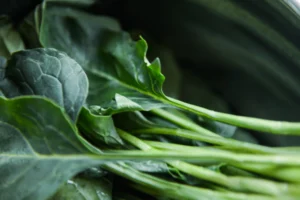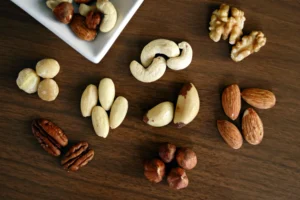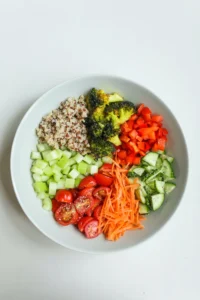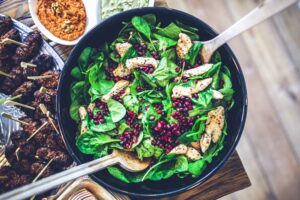Generated by Contentify AI
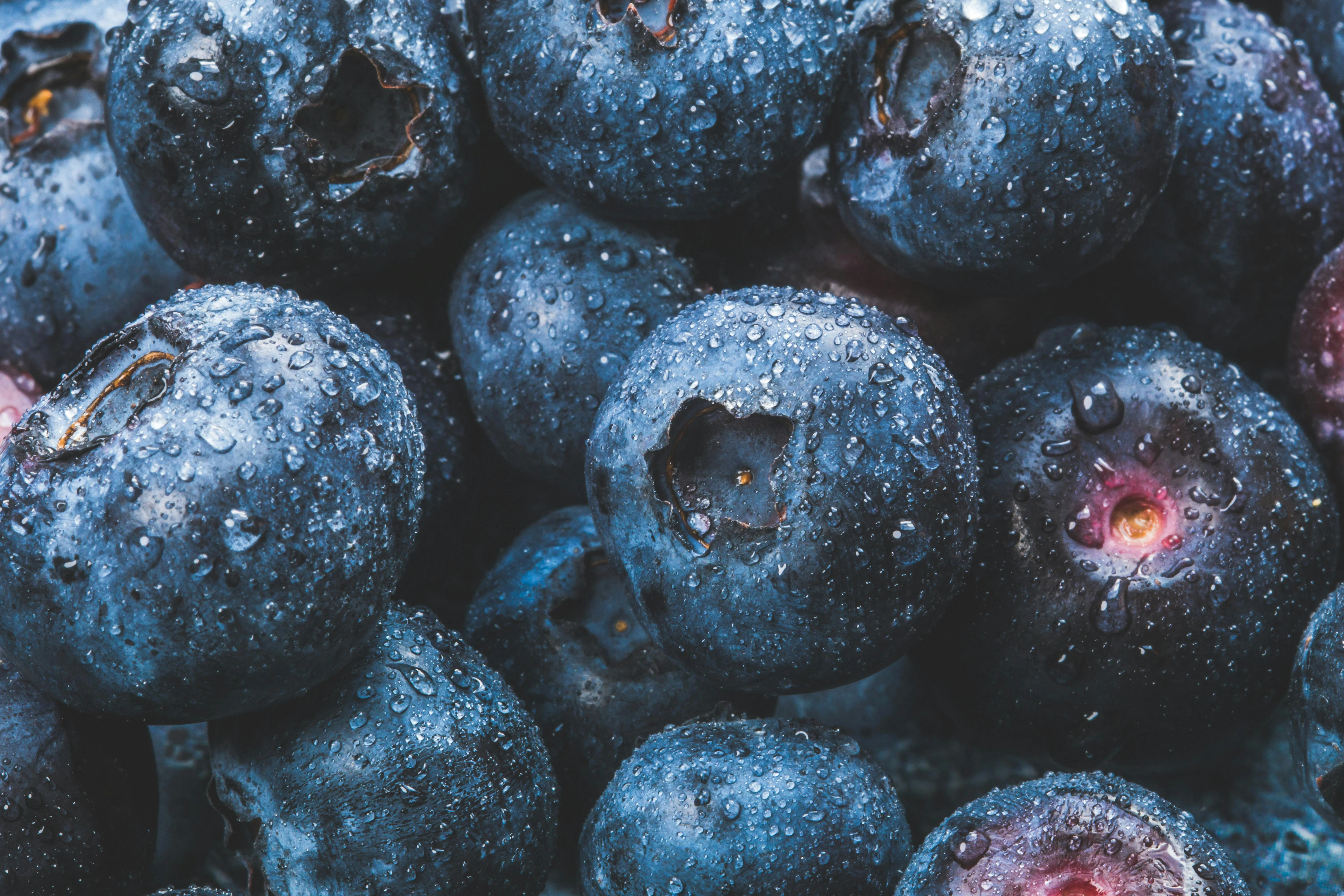
Introduction
Eating healthy as a vegetarian or vegan is not just a lifestyle choice, it’s a commitment to nourishing your body with an abundance of plant-based foods. Whether you’re a long-time vegan or just starting out on your vegetarian journey, the key to thriving on this diet is to ensure that you’re consuming a diverse array of nutrients. From protein-rich legumes to vitamin-packed leafy greens, there’s no shortage of delicious and nutritious options to explore. Embracing this lifestyle means being adventurous in the kitchen, experimenting with new flavors and ingredients, and finding creative ways to incorporate essential nutrients into your daily meals. With a little bit of planning and a whole lot of imagination, eating healthy as a vegetarian or vegan can be a thoroughly enjoyable and satisfying experience. So, let’s dive into the wonderful world of vegetarian and vegan cuisine and discover the endless possibilities for nourishing our bodies while tantalizing our taste buds.
Understanding Vegetarianism and Veganism
In the realm of mindful eating, the choice to embrace vegetarian or vegan lifestyles holds a significant impact on personal health and the environment. These dietary choices promote a compassionate approach to food consumption, and the implications extend to embracing a sustainable future. By understanding vegetarianism and veganism, individuals can foster a deeper appreciation for the impact of their food choices.
Vegetarianism encompasses a spectrum of dietary practices, with the common denominator being the exclusion of meat from one’s diet. This conscious decision springs from ethical, environmental, and health considerations, as individuals opt for plant-based sources of nutrition in place of animal products. Within this designation, subcategories such as lacto-ovo vegetarian, lacto-vegetarian, and ovo-vegetarian offer varying degrees of flexibility in consuming animal-derived products like eggs and dairy.
On the other hand, veganism represents a holistic lifestyle commitment rooted in eschewing the consumption of animal products, as well as avoiding the use of any commodities derived from animals, such as leather and wool. The tenets of this philosophy elevate the ethical imperative of treating animals with compassion and minimizing environmental harm. As such, embracing a vegan lifestyle challenges adherents to seek out plant-based alternatives for all aspects of their lives, from food and clothing to household products.
Delving into the nuances of these dietary choices, individuals embarking on a vegetarian or vegan path gain insight into the profound interconnectedness between personal well-being and broader ecological sustainability. By thoughtfully considering the sources and implications of their food, they partake in a mindful practice that reverberates beyond the confines of their own plates. As the adage goes, “you are what you eat,” and embracing vegetarianism or veganism consequently becomes a powerful declaration of one’s values and aspirations.
Key Nutrients for Vegetarians and Vegans
Explore the key nutrients essential for vegetarians and vegans to maintain a well-balanced diet in the “Eating Healthy as a Vegetarian or Vegan” section. Understand the importance of incorporating a variety of foods rich in protein, iron, calcium, vitamin D, vitamin B12, omega-3 fatty acids, and zinc to support overall health and well-being. Discover how to source these nutrients from plant-based sources and learn clever tips and tricks to ensure a nutrient-dense and satisfying diet.
Tips for Meal Planning
When it comes to maintaining a healthy vegetarian or vegan diet, meal planning is crucial for ensuring a well-balanced and satisfying experience. Incorporating a variety of nutritious foods while also considering taste and convenience can be challenging, but with the right tips, it becomes an enjoyable and effortless task.
Firstly, it’s essential to embrace diversity in your meals. Incorporating a wide range of fruits, vegetables, whole grains, legumes, and plant-based proteins not only ensures a well-rounded diet but also adds excitement and flavor to your meals. Experimenting with different cuisines and cooking methods can introduce new flavors and keep things interesting.
Secondly, planning your meals ahead of time can greatly simplify the process. Dedicate a specific day each week to plan your meals, create a shopping list, and prep ingredients. This not only saves time and reduces stress during the week but also encourages healthier choices by avoiding impulsive or unhealthy food decisions.
When it comes to cooking, versatility is key. Choose recipes that can be easily modified to accommodate different dietary preferences and can be repurposed for multiple meals. For example, a simple vegetable stir-fry can be served over rice, stuffed in a wrap, or layered in a salad, providing variety without requiring excessive cooking time.
Additionally, being mindful of portion sizes and nutritional balance is important. Ensure that your meals contain a balance of carbohydrates, proteins, healthy fats, and essential vitamins and minerals. This can be achieved by incorporating a diverse range of ingredients and paying attention to the overall composition of your meals.
Lastly, don’t forget to indulge in treats and comfort foods. A well-planned meal should also include some room for enjoyment. Whether it’s a decadent dessert, a hearty pasta dish, or a comforting bowl of soup, incorporating these occasional indulgences can help maintain a sustainable and enjoyable vegetarian or vegan lifestyle.
By implementing these meal planning tips, maintaining a healthy, vegetarian or vegan diet becomes a seamless and enjoyable experience, allowing for endless creativity and satisfaction in the kitchen.
Delicious and Nutritious Recipes
Indulge in the vibrant world of plant-based culinary delights with our Delicious and Nutritious Recipes section. Elevate your vegetarian or vegan lifestyle with a delectable array of dishes that are not only bursting with flavor but also rich in essential nutrients. From mouthwatering mains to tantalizing snacks and desserts, our collection of recipes is curated to cater to your love for healthy, wholesome eating. Get ready to tantalize your taste buds with our expertly crafted recipes that prove eating healthy as a vegetarian or vegan can be an unparalleled gastronomic experience.
Guidance for Eating Out
In the Guidance for Eating Out section of Eating Healthy as a Vegetarian or Vegan, we present insightful tips and tricks for individuals who follow a plant-based diet. Our comprehensive advice covers various aspects of dining out, such as choosing the right restaurants, making smart menu choices, and communicating dietary preferences effectively. With a blend of professionalism, wit, and cleverness, our detailed explanation aims to empower vegetarians and vegans to make informed decisions when dining out, ensuring a satisfying and nourishing experience every time.
Eating Healthy on a Budget
Eating healthy on a budget is an important aspect of maintaining a vegetarian or vegan lifestyle. With a bit of planning and creativity, it’s entirely possible to enjoy nutritious and delicious meals without breaking the bank. By incorporating cost-effective staples such as beans, lentils, whole grains, and seasonal fruits and vegetables, individuals can create a diverse and satisfying menu while staying within budget. Additionally, utilizing bulk bins, buying in-season produce, and meal prepping can further optimize both cost and nutritional value. With strategic meal planning and a well-stocked pantry, eating healthy as a vegetarian or vegan can be both affordable and enjoyable.
Understanding Supplements for Plant-Based Diets
Understanding Supplements for Plant-Based Diets
If you’ve decided to embrace a plant-based diet as a vegetarian or vegan, it’s essential to understand the role of supplements in supporting your nutritional needs. While a well-planned plant-based diet can provide many essential nutrients, there are certain vitamins and minerals that may be more challenging to obtain solely from plant sources. This is where supplements can play a crucial role in ensuring that you maintain optimal health and well-being.
One of the key nutrients that plant-based diets may lack is vitamin B12, which is primarily found in animal products. Including a reliable vitamin B12 supplement is essential to prevent deficiencies and maintain healthy nerve function. Additionally, omega-3 fatty acids, commonly found in fish, can be obtained from algae-based supplements for those adhering to a plant-based diet.
Furthermore, paying attention to iron and calcium intake is vital, as these nutrients are often associated with animal products. Including iron-rich plant sources in your diet and pairing them with vitamin C-rich foods can enhance iron absorption. However, for some individuals, an iron supplement may be necessary to meet their requirements. Calcium supplements and fortified plant-based milk and juices can help in ensuring adequate calcium intake for strong bones and overall health.
In conclusion, while a plant-based diet can offer numerous health benefits, being mindful of potential nutrient gaps and incorporating necessary supplements is crucial for maintaining optimal health. Understanding the role of supplements in supporting a plant-based diet can empower you to make informed decisions and ensure that your dietary choices align with your nutritional needs.
The Environmental Impact of Vegetarian and Vegan Diets
Through the “Environmental Impact of Vegetarian and Vegan Diets” section of the “Eating Healthy as a Vegetarian or Vegan” blog, we aim to delve into the profound influence of dietary choices on the environment. By highlighting the compelling reasons behind adopting a plant-based diet, such as reduced greenhouse gas emissions, preservation of natural resources, and decreased water usage, we seek to showcase the significant positive impact of vegetarian and vegan lifestyles on the planet. This section will provide an insightful and engaging examination of the intricate connections between our food choices and environmental sustainability, serving as a valuable resource for individuals seeking to make informed decisions that benefit both their health and the planet.
Embracing a Healthier Lifestyle
The topic of eating healthy as a vegetarian or vegan is one that is gaining importance in today’s society, as more and more people are choosing to embrace a plant-based diet. Making the decision to follow a vegetarian or vegan diet is a commendable step towards a healthier lifestyle. It involves a conscious choice to nourish the body with nutrient-rich foods while excluding animal products. This dietary shift requires careful planning and an understanding of how to obtain essential nutrients such as protein, iron, calcium, and vitamin B12 from plant-based sources. Additionally, it provides an opportunity to explore a diverse range of fruits, vegetables, grains, legumes, nuts, and seeds, leading to a more diverse and exciting culinary experience. Embracing a healthier lifestyle as a vegetarian or vegan not only benefits personal health but also contributes to reducing environmental impact and promoting animal welfare. By making informed food choices, individuals can cultivate a sustainable and compassionate approach to nourishment. Overall, the journey of eating healthy as a vegetarian or vegan is a conscious and rewarding path that offers a multitude of benefits for both the individual and the world at large.
Conclusion
The conclusion section of “Eating Healthy as a Vegetarian or Vegan” provides a comprehensive summary of the key points discussed in the blog. It offers engaging insights that further reinforce the importance of maintaining a balanced and nutritious diet while following a vegetarian or vegan lifestyle. The concluding remarks encapsulate the overarching message of the blog, leaving a lasting impression on the reader and motivating them to embrace the benefits of healthy eating habits as a vegetarian or vegan.
